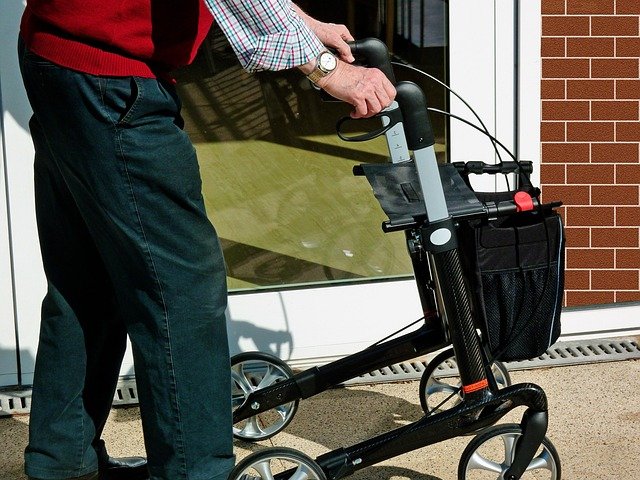Learn About Different Shower Chairs, Their Prices & Benefits
Shower chairs provide essential safety and independence for individuals with mobility challenges, seniors, and those recovering from injuries. These specialized bathroom aids come in various designs, from basic plastic seats to advanced models with backrests and adjustable features. Understanding the different types available, their specific benefits, and pricing considerations can help you make an informed decision that enhances bathroom safety and comfort for yourself or your loved ones.

Learn About Different Shower Chairs, Their Prices & Benefits
Bathroom safety becomes increasingly important as we age or face mobility challenges. Shower chairs serve as crucial assistive devices that transform potentially dangerous shower experiences into safe, comfortable routines. These specialized seats reduce fall risks while maintaining personal independence and dignity during bathing.
What Are the Different Types of Shower Chairs?
Shower chairs come in several distinct categories, each designed for specific needs and bathroom configurations. Basic shower chairs feature simple plastic or aluminum construction with four legs and drainage holes. These lightweight options work well for temporary use or individuals with minimal mobility concerns.
Bench-style shower chairs offer extended seating surfaces, accommodating users who need more space or assistance from caregivers. Transfer benches extend beyond shower walls, allowing users to sit outside the shower area before sliding into position safely.
Adjustable height shower chairs feature telescoping legs that accommodate different user heights and shower configurations. Premium models include padded seats, backrests, and armrests for enhanced comfort during longer bathing sessions.
Understanding Shower Chair Prices and Cost Factors
Shower chair pricing varies significantly based on materials, features, and brand reputation. Basic plastic models typically range from $30 to $60, while mid-range aluminum chairs with additional features cost between $75 and $150. Premium models with advanced safety features and comfort enhancements can reach $200 to $400.
Several factors influence pricing, including weight capacity, adjustability options, material quality, and included accessories. Medical-grade certifications and warranty coverage also impact overall costs.
| Product Type | Provider/Brand | Key Features | Cost Estimation |
|---|---|---|---|
| Basic Plastic Chair | Drive Medical | Lightweight, drainage holes, 300 lb capacity | $35 - $50 |
| Adjustable Aluminum | Medline | Height adjustment, non-slip feet, 400 lb capacity | $80 - $120 |
| Padded Bench | Carex Health | Cushioned seat, backrest, armrests | $150 - $200 |
| Transfer Bench | Invacare | Extends outside shower, safety belt | $120 - $180 |
| Folding Model | NOVA Medical | Space-saving design, tool-free assembly | $90 - $140 |
Prices, rates, or cost estimates mentioned in this article are based on the latest available information but may change over time. Independent research is advised before making financial decisions.
Key Benefits of Using Shower Chairs
Shower chairs provide multiple safety and comfort advantages for users with various mobility needs. Fall prevention stands as the primary benefit, as these devices eliminate the need to stand on potentially slippery surfaces during bathing. This significantly reduces emergency room visits and serious injuries among seniors and individuals with balance issues.
Independence preservation represents another crucial advantage. Users can maintain personal hygiene routines without constant caregiver assistance, promoting dignity and self-confidence. The stable seating platform also reduces fatigue during longer bathing sessions, particularly beneficial for individuals with chronic conditions or limited stamina.
Caregiver benefits include reduced physical strain when assisting others with bathing tasks. The stable platform makes it easier to provide help without awkward positioning or lifting concerns.
Common Uses for Shower Chairs
Shower chairs serve various populations and situations beyond permanent disability accommodations. Post-surgical recovery often requires temporary mobility assistance, making shower chairs essential during healing periods. Individuals with conditions like arthritis, multiple sclerosis, or Parkinson’s disease benefit from the stability and reduced physical demands.
Pregnancy-related balance changes and recovery from childbirth represent common temporary uses. Athletes recovering from injuries also utilize these devices during rehabilitation phases. Some users simply prefer the comfort and relaxation of seated showering, regardless of mobility status.
Essential Information for Seniors
Seniors represent the largest user group for shower chairs, with specific considerations for this demographic. Age-related changes in balance, vision, and reaction time make bathroom falls particularly dangerous for older adults. Shower chairs address these concerns while accommodating common senior health conditions.
Weight capacity becomes especially important for senior users, as many models support 250-400 pounds safely. Ease of assembly and adjustment matters significantly, as seniors may need to modify settings independently. Non-slip surfaces and secure locking mechanisms provide additional safety assurance.
Medicare and insurance coverage may apply to shower chairs when prescribed by healthcare providers as durable medical equipment. This potential coverage makes these safety devices more accessible for seniors on fixed incomes.
Selecting the Right Shower Chair
Choosing appropriate shower chairs requires careful consideration of individual needs, bathroom dimensions, and budget constraints. Measure shower spaces accurately to ensure proper fit, particularly for bench-style models that extend beyond shower areas. Consider future needs, as adjustable models provide flexibility for changing mobility requirements.
Weight capacity should exceed user weight by at least 50 pounds for safety margins. Drainage features prevent water accumulation that could create hygiene concerns. Professional consultation with occupational therapists or medical equipment specialists can provide valuable guidance for complex situations.
This article is for informational purposes only and should not be considered medical advice. Please consult a qualified healthcare professional for personalized guidance and treatment.
Shower chairs represent practical investments in bathroom safety and independence. By understanding available options, pricing structures, and selection criteria, users can choose appropriate models that enhance their daily routines while providing essential safety benefits for years to come.




